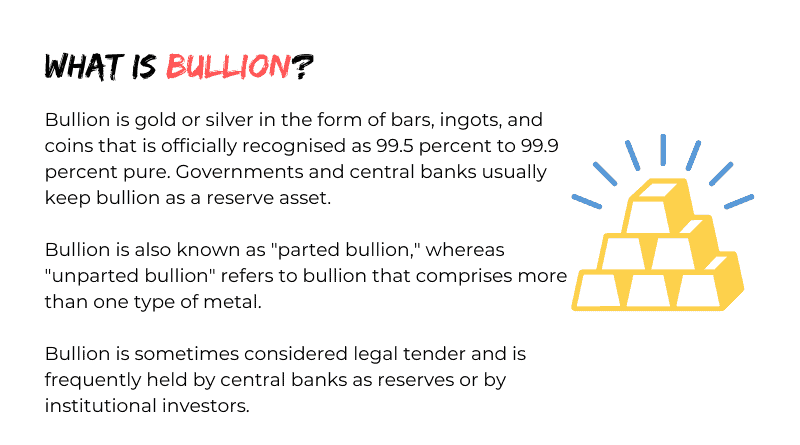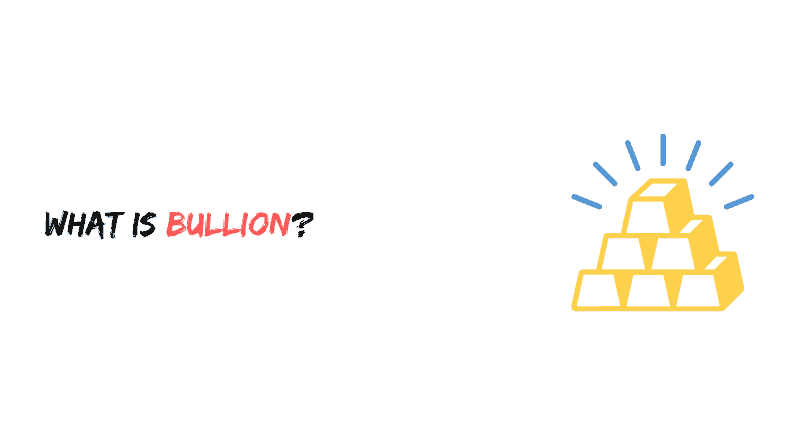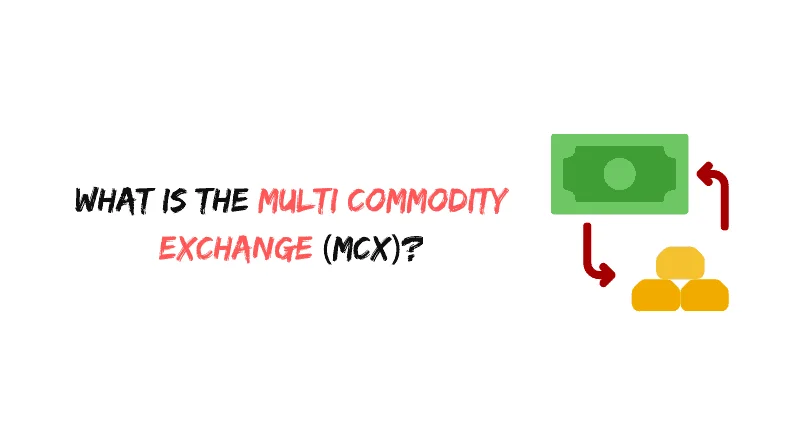Bullion is gold or silver in the form of bars, ingots, and coins that is officially recognised as 99.5 percent to 99.9 percent pure. Governments and central banks usually keep bullion as a reserve asset.
Bullion is also known as “parted bullion,” whereas “unparted bullion” refers to bullion that comprises more than one type of metal.
Bullion is sometimes considered legal tender and is frequently held by central banks as reserves or by institutional investors.
The bullion market, which is predominantly an OTC market operating 24 hours a day, is where bullion is exchanged. On the worldwide bullion markets, investors may purchase and sell bullion through dealers.















